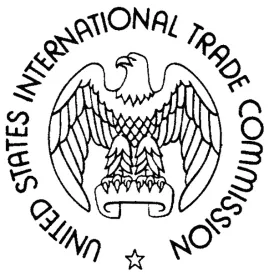Section 337 of the U.S. trade laws provides the U.S. International Trade Commission with the authority to prevent “unfair practices in import trade.” While the statute is best known for its provisions that allow the ITC to exclude imported goods that infringe U.S. intellectual property rights, the statute also provides more generally for the ITC’s ability to remedy other “unfair methods of competition and unfair acts in the importation of articles. . . the threat or effect of which is,” inter alia, “to destroy or substantially injure an industry in the United States. . . [or] to restrain or monopolize trade and commerce in the United States.” 35 U.S.C. § 1337(a)(1)(A)(i) & (iii). This section, while not frequently invoked, is used as the basis for non-statutory intellectual property rights claims (such as common law trademarks) and, to a lesser extent, antitrust claims.
The ITC’s investigation in Certain Carbon and Alloy Steel Products, Inv. No. 337-TA-1002 was instituted to investigate alleged violations of Section 337 by the Chinese steel industry based on claims of trade secret misappropriation, false designation of origin, and antitrust violations. In a recent opinion (March 18, 2018), the ITC has determined for the first time that “antitrust injury” standing is required for antitrust claims before the Commission, affirming the Administrative Law Judge’s dismissal of the claims. The Commission reasons that
Without the requirement of antitrust injury, the risk of providing relief against the pro-competitive effects or efficiency enhancing behavior of particular respondents is more acute in the context of section 337 because the Commission does not possess as much enforcement discretion as is available to other federal agencies. . . Thus, we find the practices followed in the federal courts regarding antitrust injury to be a closer analogue to the current proceeding, rather than FTC practice.
The Commission’s decision drew a lengthy dissent from Commissioner Broadbent, who wrote:
Antitrust injury is a separate and distinct standing requirement derived from, and restricted as a matter of statutory interpretation to, section 4 or 16 of the Clayton Act in Article III district courts. It is not a required element of a Sherman Act section 1 violation alleged in [the complaint].
Because antitrust claims under Section 337 are rare, the Commission’s decision may have little direct impact on Section 337 case filings or practice. Nevertheless, the Commission’s discussion of its governing statute and the Federal Circuit precedent applicable to its authority under the statute will likely be mined by litigants in future cases in which questions about the breadth and scope of Section 337 are at issue. The Commission’s decision to self-restrict its authority under its implementing statute and to align it with federal law is an interesting development that may be relevant in other contexts within and outside Section 337 investigations.
For more information about this case, please see our previous blog posts, available here: March 1; December 20; November 21.




 />i
/>i

